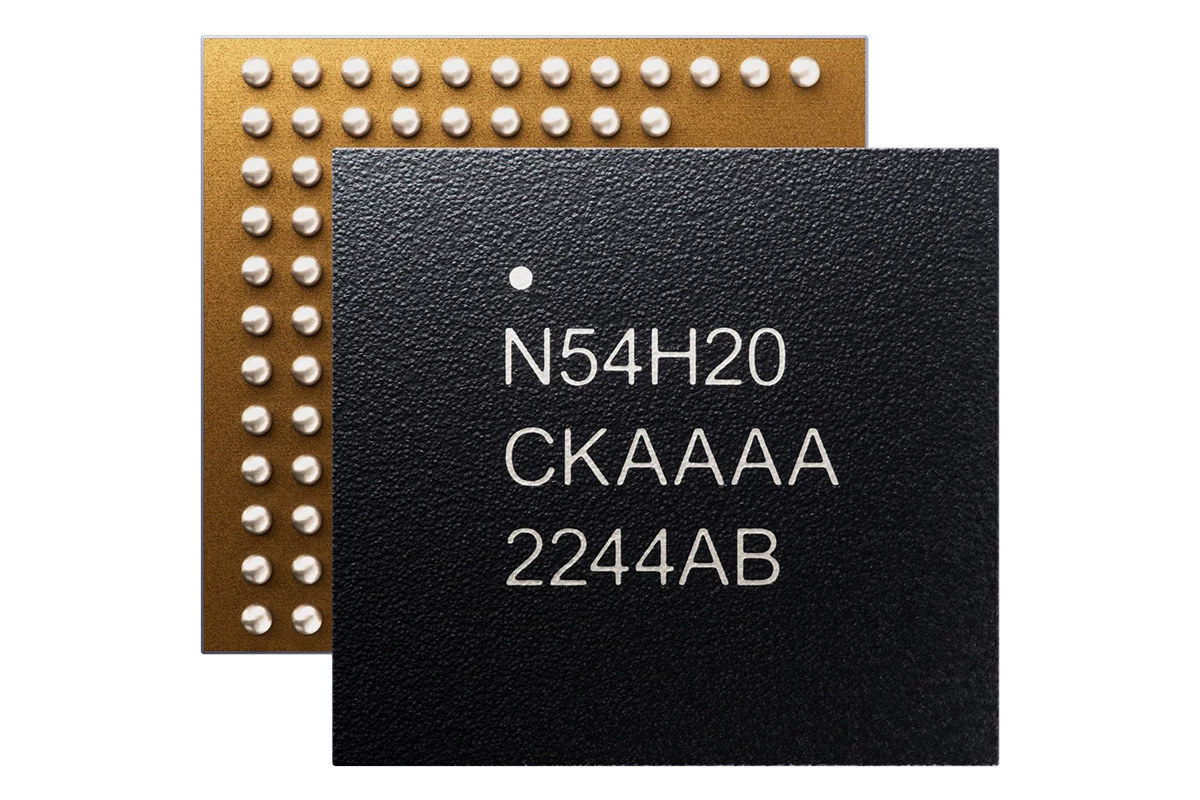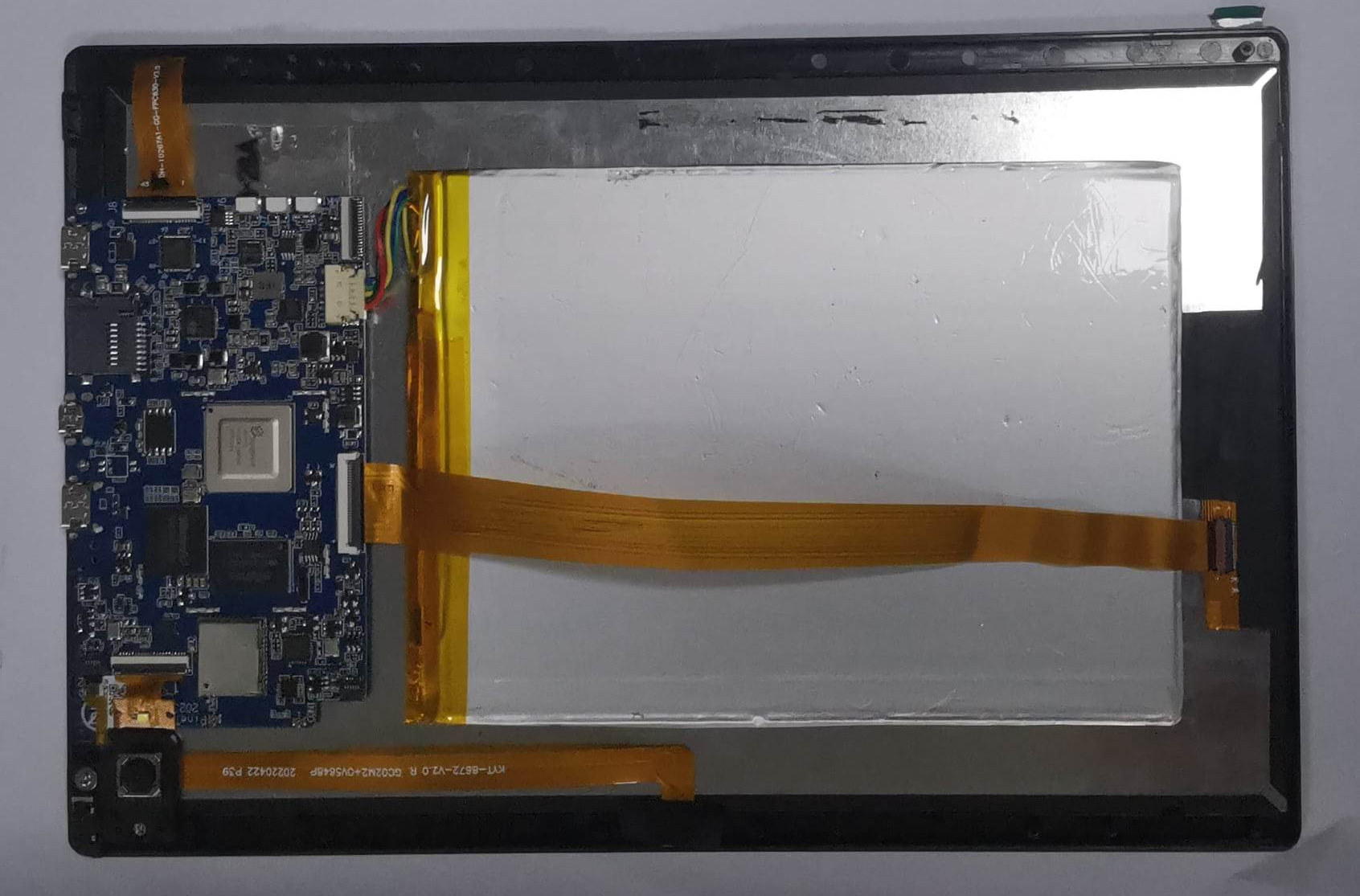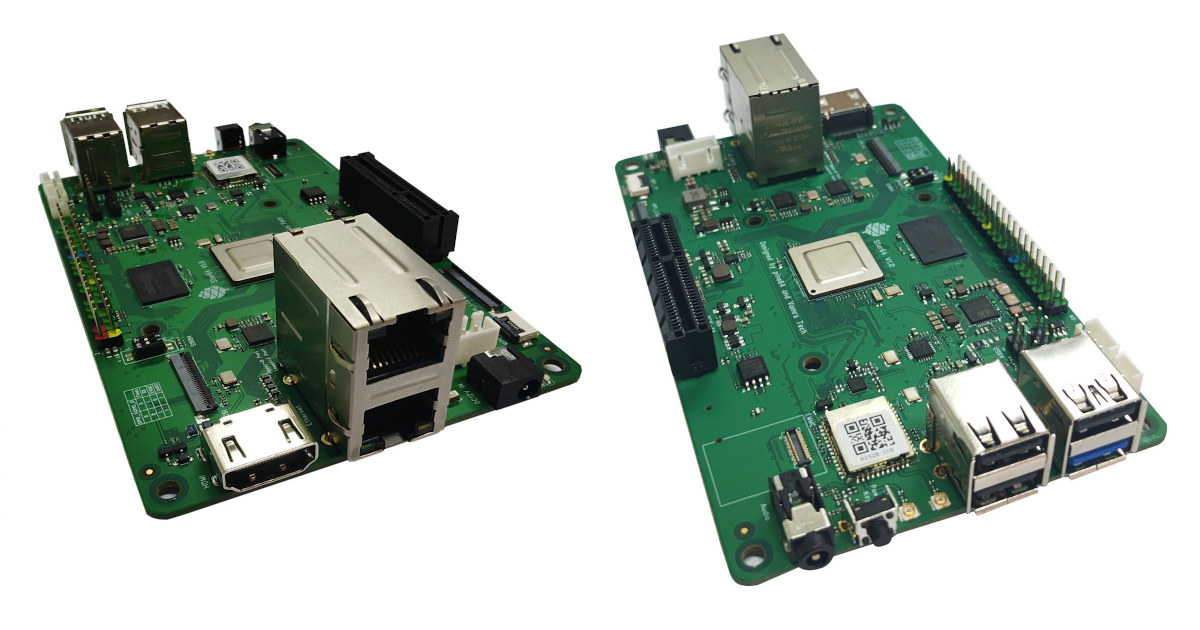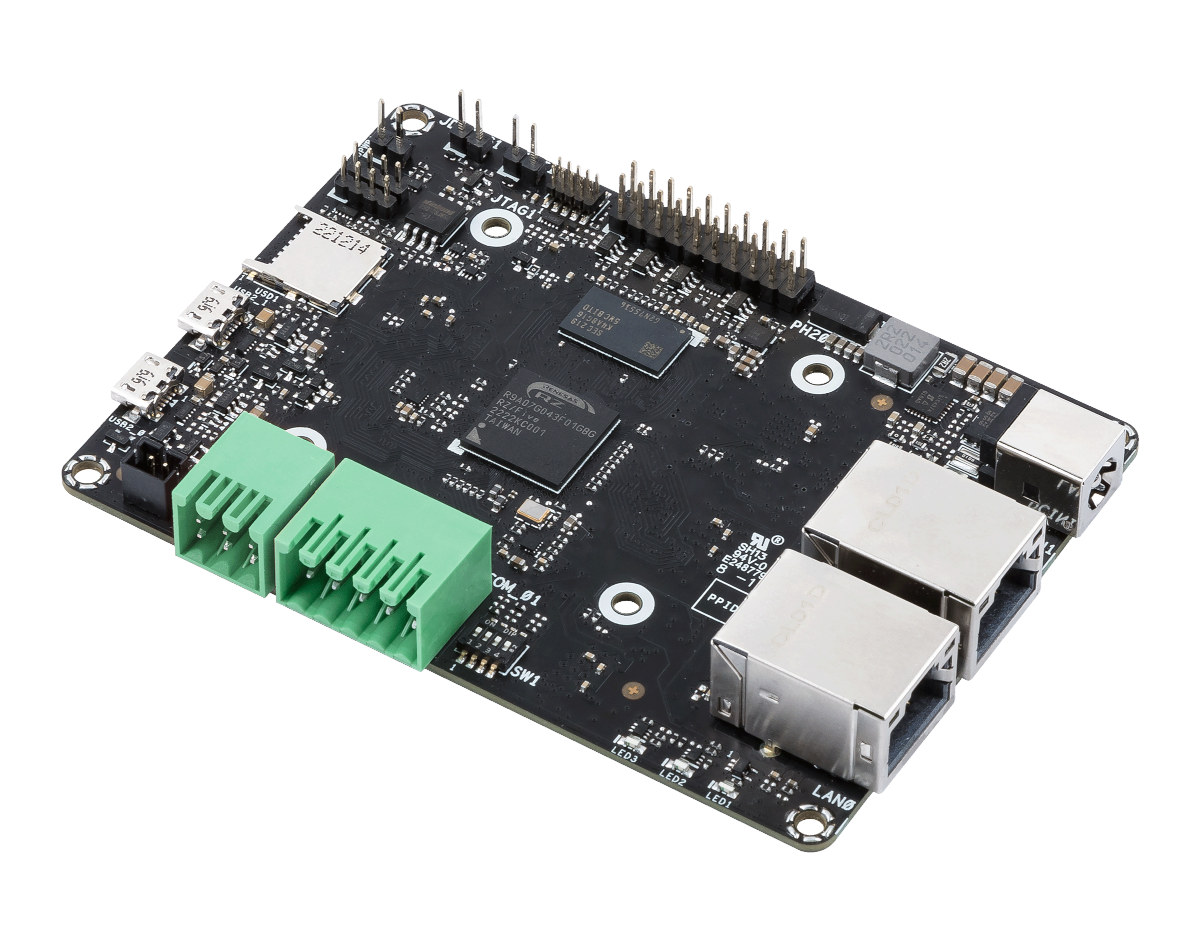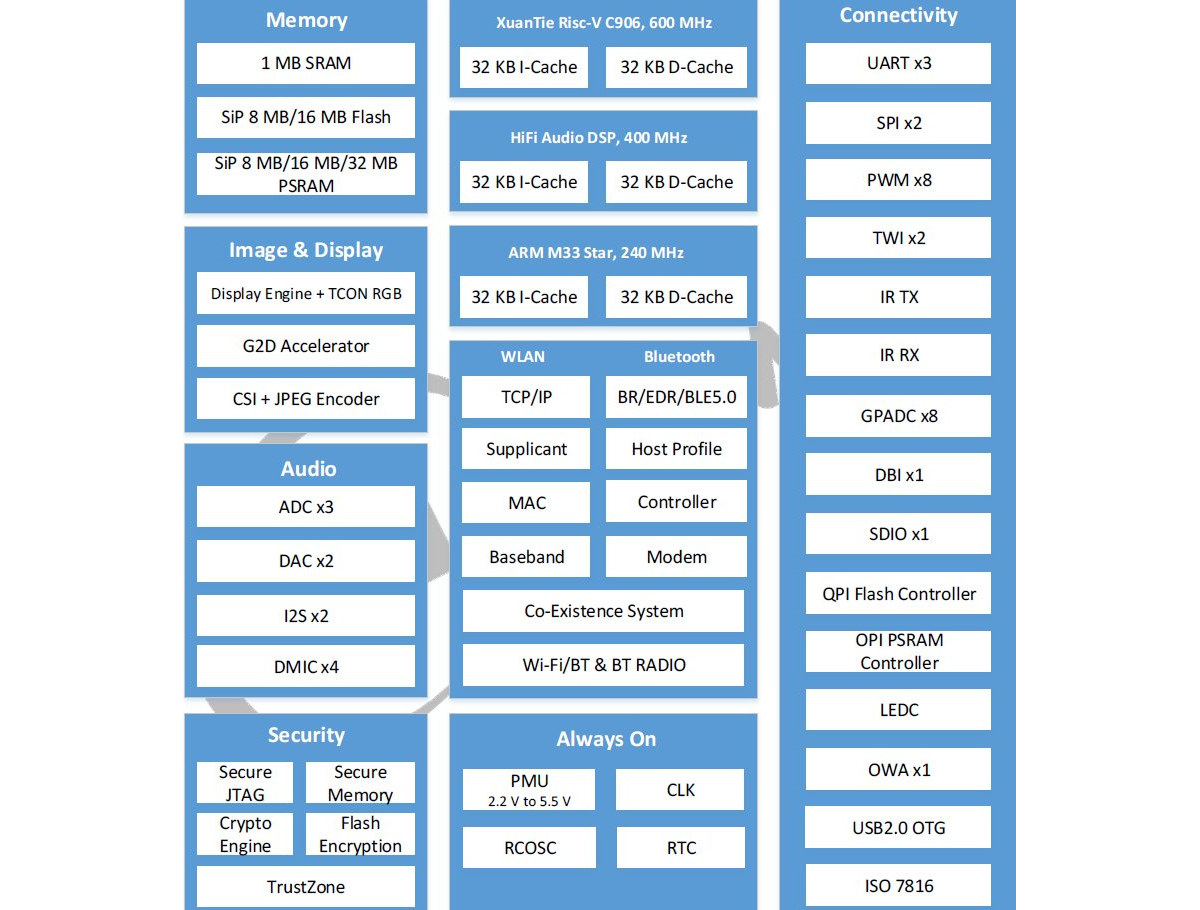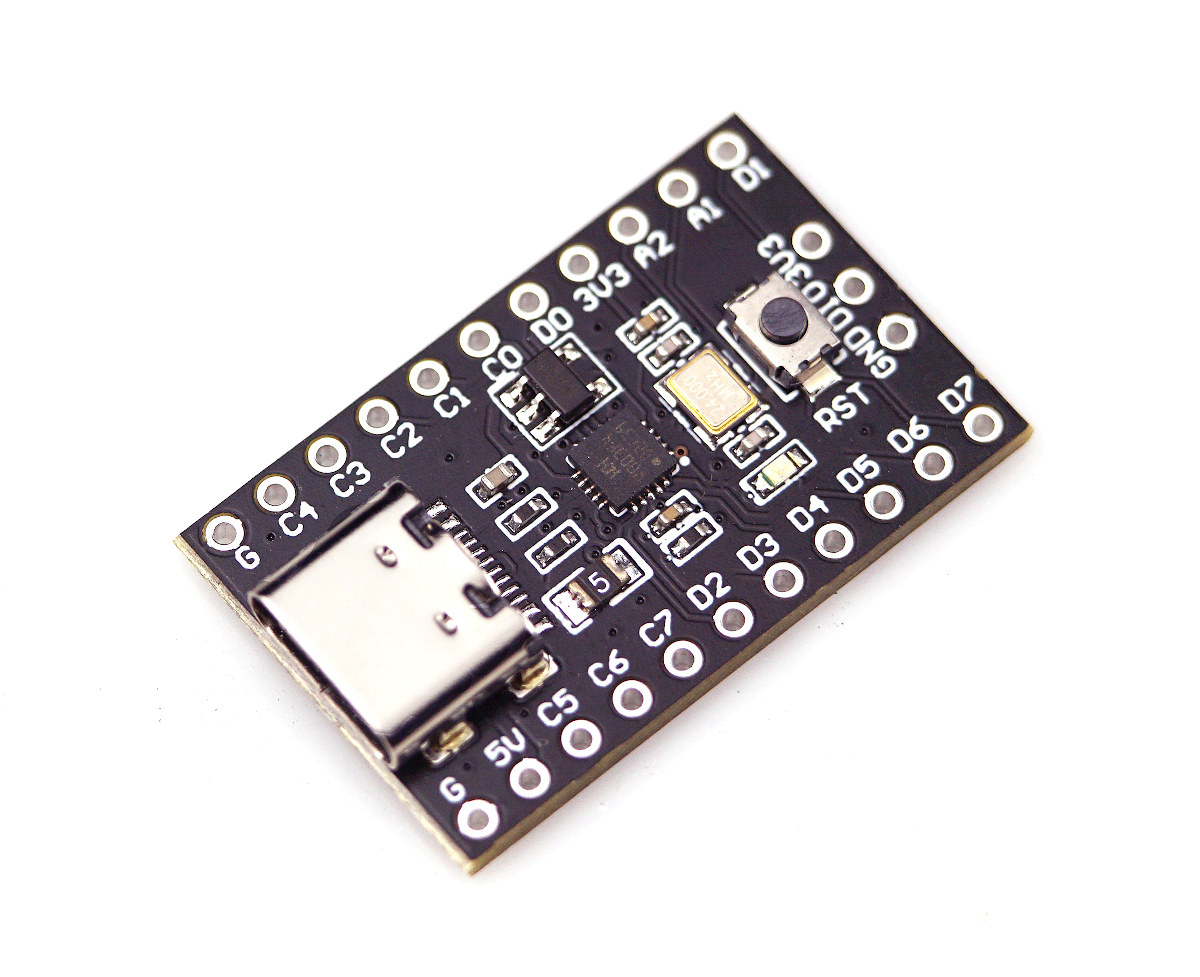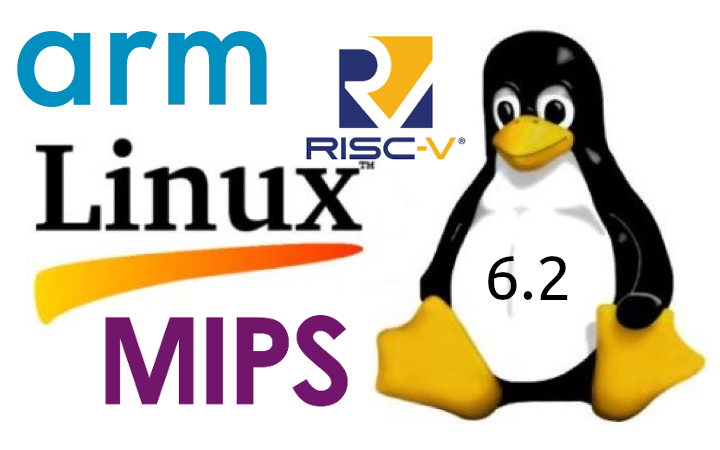Nordic Semi nRF54H20 is a 320 MHz multiprotocol wireless SoC with several Arm Cortex-M33 and RISC-V cores, support for Bluetooth 5.4 and greater with features like LE Audio and Bluetooth mesh, as well as Thread, Matter, and so on. It is the first part of the fourth generation nRF54 family manufactured with a 22nm process, and its application processor doubles the processing power (2x CoreMark) of the Arm Cortex-M33 application core in the nRF5340 SoC and embeds up to 2MB flash, 1MB SRAM. nRF54H20 preliminary specifications and highlights: CPU Application core – Arm Cortex-M33 @ up to 320 MHz with 2 MB Flash + 1MB SRAM Network core – Arm Cortex-M33 Several RISC-V cores (for low power?) Wireless Bluetooth 5.4 LE with direction-finding, Bluetooth mesh, LE audio, etc… 802.15.4 radio for Thread, Matter -100 dBm RX sensitivity @ 1 Mbps for Bluetooth LE Up to 10 dBm TX power New […]
PineTab-V RISC-V tablet devkit is based on StarFive JH7110 SoC, PineTab2 design
The PineTab-V is a RISC-V tablet, or rather a tablet development kit, based on StarFive JH7110 quad-core RISC-V SoC, and with the same design as the upcoming Arm-based PineTab2 tablet that’s scheduled to launch on April 11. Pine64 just launched the Star64 single board computer to help with software development on Linux-capable RISC-V hardware, and they took the opportunity to lay out a tablet board based on the same JH7110 to replace the Rockchip RK3566 board found in the PineTab2, so eventually, a working sample should look like that… PineTab-V preliminary specifications: SoC – StarFive JH7110 with CPU – Quad-core 64-bit RISC-V (SiFive U74 – RV64GC) processor @ up to 1.5 GHz GPU – Imagination BXE-4-32 GPU @ up to 600 MHz supporting OpenGL ES 3.2, OpenCL 1.2, Vulkan 1.2 VPU 4Kp60 H.265/H.264 video decoder 1080p30 H.265 video encoder System & Storage Option 1 – 4GB LPDDR4, 64GB eMMC flash […]
Pine64 Star64 SBC with StarFive JH7110 RISC-V SoC with GPU to launch for $69.99 and up
Pine64 Star64 is a single board computer (SBC) powered by StarFive JH7110 quad-core 64-bit RISC-V processor equipped with an Imagination BXE-4-32 GPU, and in a form factor similar to the earlier Pine64 model A boards such as the Quartz64 Model A. The Star64 SBC ships with either 4GB or 8GB of RAM, an HDMI 2.0 video output connector, two Gigabit Ethernet ports, a WiFi 6 and Bluetooth 5.2 module, USB 3.0 ports, a PCIe slot, and a GPIO header for expansion. Star64 specifications: SoC – StarFive JH7110 with CPU – Quad-core 64-bit RISC-V (SiFive U74 – RV64GC) processor @ up to 1.5 GHz GPU – Imagination BXE-4-32 GPU @ up to 600 MHz supporting OpenGL ES 3.2, OpenCL 1.2, Vulkan 1.2 VPU 4Kp60 H.265/H.264 video decoder 1080p30 H.265 video encoder System Memory – 4GB or 8GB LPDDR4 Storage – MicroSD card slot, eMMC flash module socket up to 128GB, 128Mbit […]
ASUS unveils Tinker V RISC-V single board computer, Tinker board 3 SBC with Rockchip RK3568 SoC
ASUS IoT has added two new members to the Tinker board family with the Tinker V and Tinker Board 3 single board computers powered by respectively Renesas RZ/Five single-core RISC-V SoC and Rockchip RK3568 quad-core Arm Cortex-A55 processor. ASUS Tinker V RISC-V SBC Tinker V specifications: SoC – Renesas RZ/Five single core AndesCore AX45MP RISC-V processor clocked at 1.0 GHz System Memory – 1GB DDR4 Storage – MicroSD card slot, optional 16GB eMMC flash, optional SPI flash Networking – 2x Gigabit Ethernet RJ45 ports USB – 1x Micro USB port, 1x Micro USB (OTG) port Serial – 2x CAN Bus via 6-pin terminal block 2x COM RS232 via 5-pin terminal block Expansion – 20-pin GPIO header with up to 2x UART, 2x I2C, 4x GPIO, 2x ADC, 1x SPI, 3.3V, and GND Debugging – JTAG pin header Power Supply – 10 to 24V DC via 5.5/2.5 mm DC barrel jack […]
Allwinner R128 wireless SoC features 64-bit RISC-V core, Arm Cortex-M33 core, and HiFi 5 audio DSP
Allwinner is mostly known for its low-cost Arm processor running Android or Linux, but the Allwinner R128 is a wireless audio SoC with a C906 64-bit RISC-V application core, an Arm Cortex-M33 real-time time core, a HiFi 5 DSP, and built-in WiFi and Bluetooth connectivity. The SoC also comes with 1MB SRAM, up to 16MB flash, up to 32MB PSRAM, display and camera interfaces, support for microphone arrays, and plenty of I/Os that should make it suitable for smart speakers and other voice-controlled home appliances with or without display. Allwinner R128 specifications: Application core – Xuantie C906 64-bit RISC-V core clocked at 600 MHz. DSP – Cadence HiFi 5 audio DSP clocked at 400 MHz Communication core – Arm M33 Star (Cortex-M33 from Arm China?) core clocked at 240 MHz with Trustzone support Memory 1MB SRAM 8MB, 16MB, or 32MB PSRAM (SiP = System-in-Package) OPI PSRAM controller Storage QPI flash […]
Armbian 23.02 out with Linux 6.1, DietPi 8.14 adds experimental RISC-V support
Two of the most popular projects providing images for Arm and RISC-V single board computers have released new updates with Armbian 23.02 adding Linux 6.1-based Debian and Ubuntu images, and DietPi 8.14 adding experimental RISC-V support for the StarFive VisionFive 2 SBC and new Arm boards. Armbian 23.02 Quoll Linux 6.1 is the latest LTS kernel, so Armbian is now providing Ubuntu 22.04 Jammy and Debian 11 Bullseye images based on Linux 6.1.y for boards that support it, as well as the first development images based on Debian 12 Bookworm and Ubuntu 23.04 Lunar. I could not find any new boards added in the changelog, but the release brings several improvements and bug fixes to some of the already supported SBCs including the Raspberry Pi 3, Orange Pi R1 Plus LTS, ROCK Pi S, ROCK Pi 4, NanoPi R2S, NanoPi NEO3, and Banana Pi BPI-M2 Pro. The announcement also highlights […]
CH32V003 RISC-V MCU gets $1.5 development board, open source GCC toolchain and flasher utility
When we first wrote about the 10-cent CH32V003 RISC-V MCU it was offered in a $7 development board and the closed-source MounRiver Studio IDE had to be used for programming. But things have improved since October 2022, and now, you can buy a CH32V003 board for as little as $1.5 plus shipping, and an open-source GCC toolchain and flasher/downloader are now available. Let’s have a look at the hardware first with the low-cost nanoCH32V003 development board featuring a 48 MHz CH32V003 RISC-V microcontroller with 2KB SRAM and 16KB flash, a USB Type-C port for power, a reset button, and two rows of headers for the GPIOs. MuseLab nanoCH32V003 specifications: MCU – WCH CH32V003F4U6 32-bit RISC-V2A microcontroller up to 48 MHz with 2KB SRAM, 16KB flash (QFN20 package) Expansion – 2x 11-pin headers with up to 18x GPIOs, 1x USART, 1x I2C, 1x SPI, 8-channel 10-bit ADC, 5V, 3.3V, GND Debugging […]
Linux 6.2 release – Main changes, Arm, RISC-V, and MIPS architectures
Linux 6.2 has just been released with Linus Torvalds making the announcement on LKML as usual: So here we are, right on (the extended) schedule, with 6.2 out. Nothing unexpected happened last week, with just a random selection of small fixes spread all over, with nothing really standing out. The shortlog is tiny and appended below, you can scroll through it if you’re bored. Wed have a couple of small things that Thorsten was tracking on the regression side, but I wasn’t going to apply any last-minute patches that weren’t actively pushed by maintainers, so they will have to show up for stable. Nothing seemed even remotely worth trying to delay things for. And this obviously means that the 6.3 merge window will open tomorrow, and I already have 30+ pull requests queued up, which I really appreciate. I like how people have started to take the whole “ready for […]


